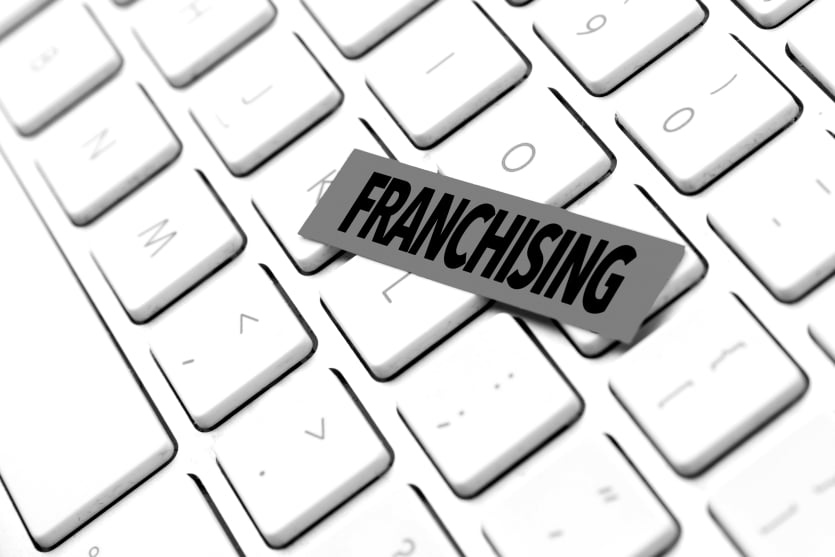FRANCHISORS IN THE US might reasonably assume that, because of the proximity of Canada and the similarities in our culture, less research is needed than if they were moving to a faraway country. Forgoing the same level of research may be especially tempting for the franchisors that have invested a significant amount of money into US disclosure documents and processes, “but they can’t,” says Ned Levitt of Dickinson Wright LLP in Toronto. “Just because we are so much alike doesn’t mean we’re dealing with the same issues.”
For starters, Canada’s 10 provinces and territories present variations in governing legislation and regulation. Six provinces — BC, Alberta, Manitoba, Ontario, Prince Edward Island and New Brunswick — each have their own franchise-specific statutes. And so simply resorting to the “wraparound” business and disclosure model that is prevalent in the United States is a dangerous proposition, Levitt says. “We recommend they do proper Canadian disclosure from square one — one that complies with all provinces — if there is an issue around compliance, and it’s an early issue that in-house counsel really wants to understand because they’re going to have to make some decisions about how to proceed.”
US in-house counsel, even when they hire Canadian law firms to do the Canadian work, really have to adjust, he says. For example, in both the US and Canada, where they have to put the cost of establishing a franchise in the disclosure agreement, “I can’t tell you the number of times I get a US franchiser coming into Canada with numbers that are perfectly valid in the US but not valid in Canada.”
The cost of square footage and labor in Minneapolis may be nothing like the cost in Montréal and, if they just use the US number, warns Levitt, “they will have [inadvertently] provided a defective disclosure document that will at least give the franchisee a remedy of a 60-day rescission and possibly as much as two years and possibly damages as well.”
This could ultimately mean that a franchisor in that scenario would be obligated to reimburse the franchisee for the total quantum they paid to the franchisor, as well as to parties such as contractors, and possibly, toward lease commitments. This is in addition to losses the business incurred up to the period of rescission. “It is very powerful, and there’s no defense to it. It’s a strict liability.”
How common are rescission suits? “They happen almost every day,” he says. However, many, if not most, settle before they get to court, in part to keep it out of the public domain so other franchisees don’t necessarily find out and follow suit. Still, for US companies, it can be an expensive lesson.
Blair Rebane, national leader of the franchise and distribution group at Borden Ladner Gervais LLP in Vancouver, says many US in-house counsel are caught by surprise at just how different the climate is. Unlike in the US, where franchisors need to register in some states, there is no registration process in Canada and no federal franchise law. “I always get asked that question,” says Rebane. “None of that exists here.”
The other main difference, assuming the franchisor is prepared to make specific Canadian disclosure, he says, is it may have to be tailored for each individual franchisee. “In Canada,” he says, “because of where our case law has gone, you also have to ask yourself whether there is site-specific information that needs to be included in the disclosure document, information you wouldn’t really ask in the US.”
Rebane uses the example of a franchisor that has already scoped out locations, found a good one, entered into a lease for it and is starting to develop the location on spec while looking for a franchisee. Under that scenario, in Canada, the disclosure agreement handed to the franchisee will have to contain a schedule with all available site-specific information. The document would have to contain “a copy of the head lease, a summary of the relevant provisions, if you’ve entered into a construction agreement for that location, likely a copy of that agreement and some details around it.”
If it’s a resale and the franchisor had sent five notices of default to the selling franchisee in the past two months, you would also have to disclose those notices of default, he says. In one case Rebane was involved in, the franchisor knew a street was going to be shut down for a very long time while transit was being built up, but didn’t disclose it to the franchisee who was going to build on that very street. “It’s that type of site-specific information that franchisors have to think about.”
In Canada, the key is, when you hand over a disclosure document, you’ve got to ask yourself every time whether it includes all material information. In the US, it’s “kind of like a tick list, and as long as you tick all the boxes and have all that information, you’re okay. Here, we have that but you also have to include anything material — and material is anything that could impact the franchisee’s decision to acquire the franchise. You can’t use the same disclosure document every time.”
The issues in deciding whether to franchise in Canada aren’t confined to disclosure. The actions of one province are actually sending out alarm bells, and it’s Ontario, home to about a third of Canada’s population. As part of a sweeping review aimed at modernizing its labor and employment laws, the Ontario government is looking at making the franchisors joint employers with its franchisees — a debate that’s swirling in the US where the National Labor Relations Board has been discussing it for years. If the franchisor becomes a joint employer, it could mean liability for a parent company for violations by franchisees, and it might require the parent company to be involved in the bargaining with unionized and unionizing workers.
“A lot of the things that have been said in the US, those same arguments are now being made in Ontario,” says Larry Weinberg, a partner at Cassels Brock & Blackwell LLP in Toronto. He says the Ontario government has appointed special advisors who have received the same submissions that were made in the US, “just made by Canadian union groups. They took a lot of the stuff from the US.”
The special advisors are expected to issue their final report, with recommendations, in 2017. Weinberg has met with them on behalf of the Canadian Franchise Association. The report will not be binding; the Ontario Ministry of Labour can determine the way in which it proceeds.
Weinberg believes it would be a seismic miscalculation to make franchisors joint employers. “It would be a huge disincentive for anybody to expand into Ontario — and Canada — especially from the US. Eight times out of 10, Ontario is where they come first because of the population.” He is telling US franchisors that the industry “is being quite vigilant in letting the government know its position, and I feel quite confident someone in the government of Ontario will … realize it will drive away business if they pursue this course of action.”
As if that weren’t challenging enough, as of January 2017 Ontario made it mandatory for chains with more than 20 outlets to label the calorie content for each item and put it into the context of what a normal person needs each day.
“There’s been some concern among lawyers about whether the franchisor could be held liable for the franchisee’s failure to comply,” explains Bruno Floriani, a partner at Lapointe Rosenstein Marchand Melançon, L.L.P. in Montréal. Floriani says, moreover, that it’s “not unreasonable” to expect the requirement to be adopted by other provinces.
US franchisors moving into Canada also face another very distinct challenge in Québec, Canada’s second-most populous province, with more than eight million people. While Canada is officially bilingual, Québec is officially a French-speaking province. Floriani says, “We tell our clients, given 80 per cent of your population here is French-speaking, it makes good business sense to translate your materials into French.”
The other issue Floriani gets asked about is the difference in legal systems — Québec uses civil law while the rest of Canada is based on common law. While in some cases the difference requires some adaptation in the franchise agreement, he says it‘s not necessarily significant because Québec “has made an effort to harmonize the result” with the other provinces.
In late 2016, the Québec government introduced new regulations requiring businesses that use trade-marks on their signs in Québec to include a French-language description or “other significant presence of French.” That can include a generic description of the products or services, a slogan, or any other term or indication around the display of product information.
The amendments specify the French name be given permanent visibility and be at least as legible as the English name in principal signs displaying the trade-mark — so if the English trade-mark sign is lit up at night, or visible from the highway, for example, the French counterpart must be lit up and visible as well.
Floriani says “the market is such an important and lucrative market” that franchisors will just factor in the risk and adapt their practices and perhaps their pricing” rather than stay away.
What it boils down to, Floriani and the others say, is simply doing your homework. For US-based franchisors, doing your homework in Canada also means keeping up on case law. “I’ve been closely following Wishart Act cases for the past 17 years,” says Jennifer Dolman, a litigation partner at Osler, Hoskin & Harcourt LLP. “I have over 200 now, many of which have interpreted the Wishart Act in ways that franchise lawyers reading the statute as drafted would never have contemplated.”
In the fall of 2016, Ontario Superior Court Justice Matheson considered, “an alleged failure of disclosure in breach of the Arthur Wishart Act (Franchise Disclosure), 2000, S.O. 2000, c. 3 (“AWA”) and related regulations.” In her decision in Raibex Canada Ltd. v. ASWR Franchising Corp., 2016 ONSC 5575, an appeal that is being heard by the Ontario Court of Appeal this October, Justice Matheson held, “Among other things, the plaintiffs [franchisees] submit that the defendants are not excused from their statutory mandatory disclosure obligations simply because the location of this proposed franchise was not identified before the Franchise Agreement was signed. I agree. Here, the form of lease included in the franchise disclosure document was materially incomplete and the disclosure document said that costs ‘vary dramatically from location to location’ and ‘the Franchisor has no reasonable means of estimating or predicting those costs with any certainty.’ It is insufficient for a franchisor to simply say that required material information was not known at the time of disclosure. In the circumstances of this case, it was premature to purport to deliver the disclosure document under the AWA and enter into a franchise agreement.”
Dolman says this decision, “is a significant game-changer if it means franchisors can’t deliver disclosure documents before leasing arrangements and all other material facts are known. Hopefully we’ll get clarity from the Court of Appeal, but until then, the common practice of selecting a site after the franchise agreement has been signed is not without risk. To help reduce or eliminate exposure to rescission and other claims, franchisors should be speaking to experienced Canadian franchise counsel now about available options.”
In another important decision for US franchisors, the Ontario Court of Appeal heard in Addison Chevrolet Buick GMC Limited v. General Motors of Canada Limited, 2016 ONCA 324, an appeal by franchisee car dealerships. Justices Doherty, Pardu and Benotto considered, in the context of a pleadings motion, whether it was “plain and obvious” that a parent company, in this case GM US: “(1) Could not owe a duty of good faith or fair dealing to the appellants under the AWA; and (2) Could not owe a duty of good faith or fair dealing to the appellants at common law.”
The appellate court in Addison overturned the lower court and held that the Canadian franchisees’ allegations that GM US — not the Canadian corporate subsidiary — was the real decision-maker in the grant and operation of the franchises should go to trial. It remains to be seen whether a court considering such an allegation in a future trial on the merits, may expand the interpretation of what it means to be a “party” to a franchise agreement.
On all of these issues, US counsel are well advised to indeed take Canadian advice.





